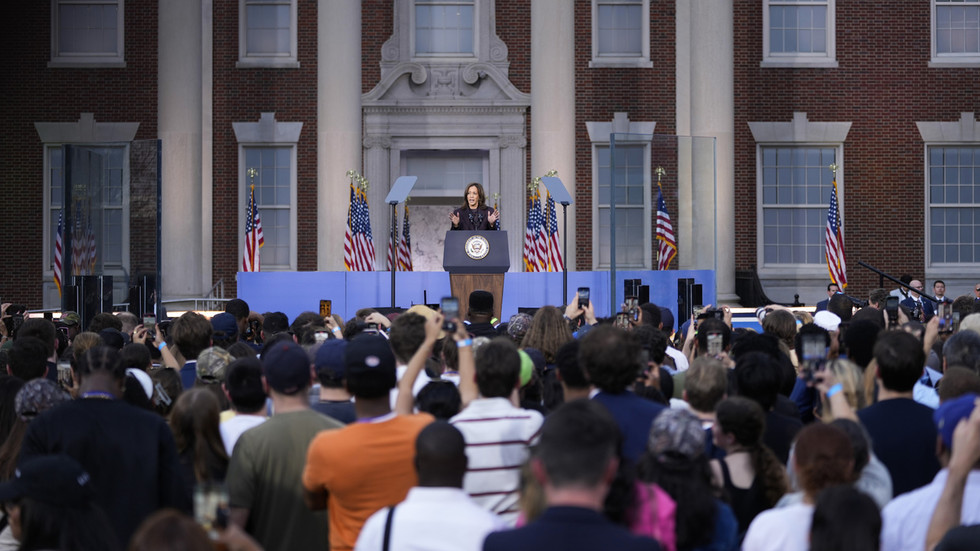In a significant political event, U.S. Vice President Kamala Harris addressed the nation following the presidential election where Donald Trump was declared the winner. In her concession speech delivered in Washington, D.C., Harris acknowledged the outcome of the election, which had become increasingly clear with Trump poised to secure more than the 270 Electoral College votes essential for victory. Though she had initially refrained from conceding on election night, her subsequent speech at Howard University reflected a somber recognition of the political landscape, noting, “I know many people feel like we are entering a dark time, but for the benefit of us all, I hope that is not the case.” Her remarks were laced with disappointment over the election results, which she described as not aligning with the hopes and efforts of her base.
Harris articulated her pride in the campaign’s strategic execution and expressed gratitude to key figures in her political journey, including President Joe Biden and other campaign partners. While she formally conceded the election, Harris emphasized her commitment to the underlying fight that motivated their campaign, asserting, “I do not concede the fight that fueled this campaign.” Her speech resonated with a message of resilience, urging the crowd not to bow to despair but to continue advocating for Democratic values and ideas. She called on her supporters to persist in their grassroots efforts, legal battles, and public discussions to promote their vision for America.
The Vice President’s message carried an important note of unity and acceptance, insisting on the necessity of a peaceful transition of power despite the dissatisfaction from her supporters, who reacted with boos when she stressed the need to accept the election results. In framing her party’s ideals as representative of “America at our best,” Harris summoned her colleagues to rally in the face of this electoral setback and leverage the lessons learned from their campaign to galvanize future efforts.
Harris’s own political trajectory has been marked by strategic maneuvering and democratic alliances, especially her ascension as the Democratic presidential nominee in July, which followed significant pressure on Biden to step aside. Her campaign, characterized by rapid adaptation, allowed her to bypass the primary debates and capitalize on Biden’s existing campaign resources. Notably, Harris had previously sought the presidency herself, yet her early withdrawal due to limited financial backing and support illustrated the often tumultuous nature of political seeks for high office.
The Biden-Harris ticket had historically received 81 million votes in the 2020 election, achieving a stunning defeat of then-incumbent Trump. In this most recent election cycle, however, the political landscape shifted dramatically, with the Harris-Walz ticket garnering just over 67 million votes while Trump amassed 72 million. This swing reflects not only changes in voter sentiment but also raises broader questions regarding the Democratic Party’s strategies and engagement with various voter bases, particularly in light of Harris’s appeal and political style.
In conclusion, Harris’s concession was laden with emotional weight, encompassing personal pride in their campaign while acknowledging a broader ideological struggle that extends beyond electoral outcomes. She sought to inspire hope amid disappointment, urging her supporters to harness their collective energy for ongoing political engagement and advocacy. While the Democratic Party faces significant challenges moving forward, Harris aims to keep alive the spirit of the fight for their vision of America, positioning the party for future revitalization and resilience in the face of shifting political tides.

